Hope in Focus Brings Voices of People Living with LCA Directly to the FDA
Allison Wolf, whose 9-year-old son Elliot lives with the encroaching blindness of Leber congenital amaurosis (LCA), spoke directly to staff from the country’s regulatory agency to help them understand the dire need for treatments for the rare inherited retinal disease.
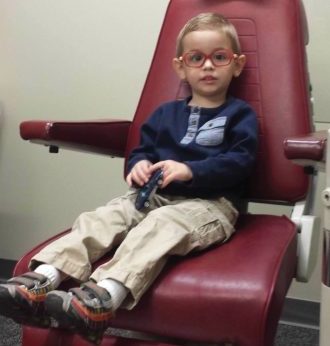
Elliot Wolf
“Elliot’s eyes are dying, Allison said. “They are dying, and we have nothing to help slow down the progressive loss of his eyesight,” she told the Food and Drug Administration (FDA).
“What would a timely and effective treatment mean? The whole world,” the mother of four said.
Allison and five others affected by LCA shared their stories with the FDA during a recent Patient Listening Session hosted by Hope in Focus.
We brought together the voices of people living with LCA, caregivers, and a clinician treating people with LCA to FDA staff members in a 90-minute online meeting Oct. 30, 2023. Simply put, we wanted the FDA to truly hear our community’s voices.
Our year-long planning resulted in a successful session to help regulators understand patient/caregiver experiences related to LCA. We requested the meeting to raise awareness with FDA staff about clinical differences of LCA genotypes, share patient experiences of LCA’s impact on the quality of their lives, given the scarcity of treatments, and communicate the extraordinary significance of vision stabilization for patients.
Raising awareness is key to advancing research
People in our community struggle daily to find ways to cope and try to live normal lives in a sighted world. Still, they never give up hope for new treatments and the possibility of a cure. As an advocacy organization, one of our biggest challenges is creating awareness of LCA.
Courtney Coates, our Director of Outreach and Development, introduced the Hope in Focus mission and said LCA affects about one in 33,000 people and presents early in life, resulting in total blindness. Twenty-seven genes have been identified to cause LCA, with treatment available for one form, while a handful of others are in clinical trials.
Co-founder and Board Chair Laura Manfre said as the parent and caregiver of their daughter Sofia living with LCA, raising awareness, searching out new treatments, and providing support to the growing LCA community became the mission of Hope in Focus.
Laura said she wanted to underscore the goals of treatment, in particular around the stabilization of vision for Sofia and others with LCA.
“While vision restoration would be fantastic, having access to a treatment that stabilizes her vision would be huge for her. Not having to constantly change her accommodations for her changing vision is a huge win, and not having to fall asleep every night worried that the next morning might be the one she wakes up without any vision at all. That would be life changing.”
Sharing a chart showing seven current clinical trials, she explained two are not recruiting at this time, two have been discontinued, and all seven represented only four LCA genetic variations.
“So, there is still a lot of work to be done to advance potential treatments.”
Caregivers and people living with LCA tell their stories
Six people from our community shared their experiences.
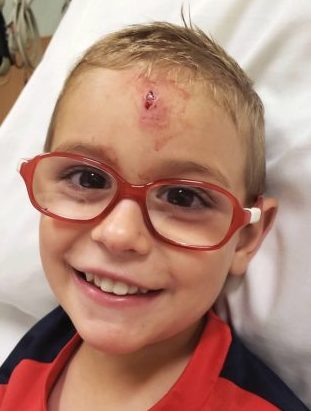
Elliot Wolf
Allison Wolf, who is 45 and from North Dakota, said doctors diagnosed her son Elliot with LCA13 (RDH12) when he was 6, and as he gets older, her challenges also grow.
“Nobody knows how to raise a visually impaired child. I must be taught. I must teach him the sighted world, while also dealing with the challenge of teaching him the non-sighted world,” she told agency staff. “My heart hurts when I hear Elliot say, ‘I just want to be done with all this work and I just want to play.’”
***
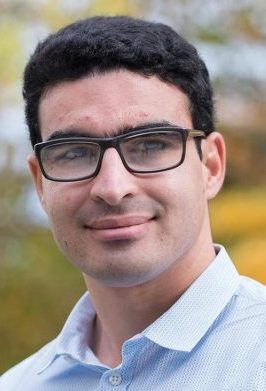
Mohamed Farid
Mohamed Farid of Illinois is a 36-year-old entrepreneur, diagnosed with LCA5 at 40 days old. His mother quit her job to take care of him, and they moved back to Egypt. Preserving his sight concerns him the most, and his greatest fear is the risk of injury.
“For new treatments,” Mohamed told the FDA, “the first thing I would look for is something to stop any degradation – I sense that my functional vision has degraded slightly over time and would imagine there is something going on with my retina, but do not know.
I have been told by doctors that I will lose my sight in the next two to three years ever since I was 5, and that lack of a prognosis is a killer. Following conservation, I care most about night blindness, then field of vision. …
“I was lucky to have a huge support network of people, who went out of their way and had a lot of energy and stress tolerance. This does not mean that life was easy or that I would not want a cure, even a partial cure would be life changing. It does mean that the cost of LCA is high, but barely bearable.”
***
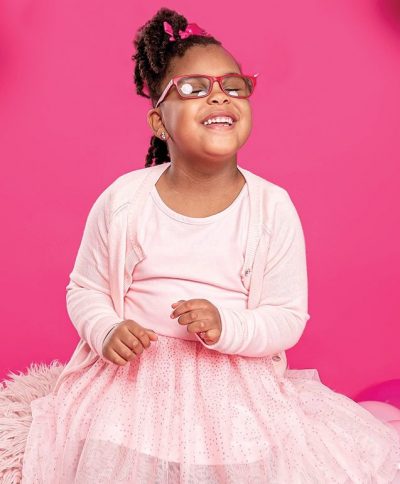
Jordynn Erwin
Joy Goodwine, 40, of New York is the mother of 7-year-old Jordynn, diagnosed at age 1 with LCA2 (RPE65), and received a new diagnosis last year of LCA1 (GUCY2D). She always wanted Jordynn to have some sense of normalcy.
“I’ve always asked family and friends to treat her like any other child,” Joy said. “I do not want people to feel sorry for her and I do not want her to have any special treatment because of her
visual impairment. Jordynn is being raised to know that she is capable of doing anything she wants with limitations…
“What I fear most as a parent with a child living with LCA is I worry that her kindness and vulnerability will lead to unwanted interactions when she gets old enough to go off on her own, or her eyes get worse if treatment is not available.”
***
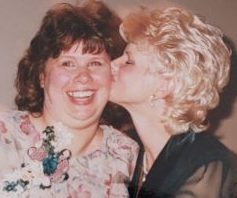
Linda Wirth
Linda Wirth is 76 and lives in Colorado. Her vision loss remained a mystery until her diagnosis of LCA10 (CEP290) at age 68. As a child, she learned about the world around her by touching things and holding them.
“My family often told me, ‘Don’t touch that! You will break it. Don’t act strange. People will stare at you.’ So, I began to fake it, pretending I understood things which I did not in order to get along and not appear any different.”
One doctor early on told her: “You are blind! What do you want me to tell you? If you are looking for a miracle, there is none.”
A retired clinical social worker, Linda’s been angrily dismissed from jury duty and job interviews, ignored by waitstaff, and questioned whether she deserved to be a parent.
“Just as many differently abled folks, I have encountered individuals with various stereotypes and prejudices.”
***
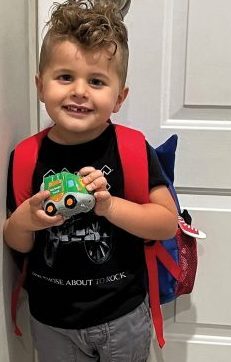
Jace Broadbin
DJ Broadbin of Connecticut is a 34-year-old mother and caregiver to 5-year-old Jace, who was diagnosed with LCA4 (AIPL1) at 10 months old. Through a Hope in Focus connection, she succeeded in getting compassionate use treatment in the UK for Jace. The treatment, which applied only to his specific gene mutation, has restored some of his sight in one eye.
“No matter what happens with his vision or developing new treatments,” DJ told the FDA, “I remain steadfast in having the same goal I had for Jace since the very second I found out I was going to be a mom – I just want him to be happy. And I will continue to fight for his inclusion in this world to make sure that he always is.”
She often finds herself exhausted by the constant stress of being a caregiver.
“I also wish sometimes,” DJ said as her voice broke, “I just got to be a mom. Not a medical coordinator, an occupational therapist, and a Teacher of the Visually Impaired all rolled up into one. Just mom.
“But then I think about all the things that Jace’s diagnosis has given me personally: Clarity. Patience. Compassion and empathy in a way that I myself was too blind to see in those earlier days.”
***
Mirielle St. Arnaud is 16 and lives in Illinois. She was diagnosed with LCA (IQCB1/NPHP5) at 6 months old. Her early diagnosis was possible because her older brother had been diagnosed with LCA.
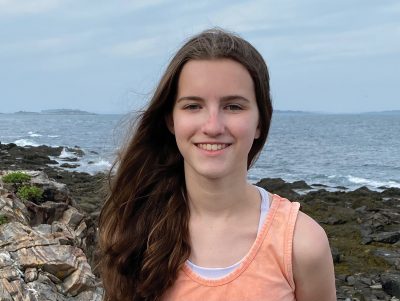
Mirielle St. Arnaud
Mirielle worries about her safety and struggles to fit in with her classmates because she misses social cues. She hopes her fairly stable vision will not get worse.
She shared a wish list with the FDA that included personal independence, the opportunity to participate in sports, and more certainty about achieving the career of her choice (she dreams of being a lawyer).
“Some of the more significant challenges I face because of visual impairment relate to jobs and getting hired. It takes longer for me to learn certain skills at a job. I have to rely on others when out in public, especially when traveling. I also struggle to find accommodations for my impairment. It seems that other people know my needs better than I do.”
***
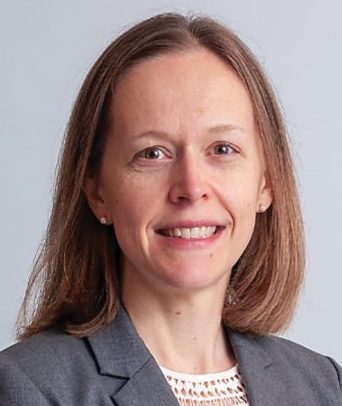
Rachel M. Huckfeldt
Our representative clinician, Rachel M. Huckfeldt, MD, PhD, of Massachusetts Eye & Ear, spoke about the difficulties of diagnosing and managing LCA and the small number of clinical trials. Identifying the responsible genes can be difficult, and the small number of patients severely limits opportunities for clinical trials.
Questions asked by FDA staff members focused on a few common themes: Have you participated in clinical trials? What are the key impediments to clinical trial participation? What are your deal-breakers to participation? What would a successful treatment look like to you?
One result certainly not on the agenda was the deep emotional impact of the stories shared by those living with LCA and caregivers. The session manifested itself as a profoundly moving event.
A full summary of the FDA Patient Listening Session will be available on our website.
